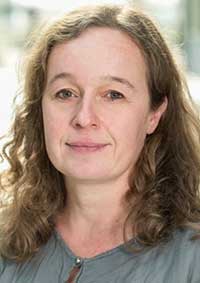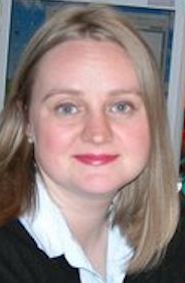Multidisciplinary Sediment Core Project
Lecturers: Oliver Esper, Heather Johnstone, Gesine Mollenhauer, Rebecca Rendle-Bühring, Christoph Vogt, Yang Zhang
The 16-20 participants of each project course jointly investigate a scientifically attractive marine sediment core applying a wide method range (e.g. core description, core logging, echosounding, proxy methods, micropaleontology, geochemistry, sedimentology, mineralogy, environmental magnetism, chronostratigraphy). Organized in teams of 4 students, they work half-days in research labs of supporting expert scientists. Each student takes responsibility for a certain method, analyses the jointly collected data, and presents the results orally in a final exam colloquium. Subgroups of 5-6 students interpret their complementary results in a scientific poster. Presentation skills are trained during the class.
1) understand and exemplarily apply the modern multidisciplinary methodology of marine sediment core research within in a practical, coordinated team project
2) perform method-specific laboratory analytics, process experimental data, and create computer graphics to visualize, compare and communicate own scientific outcomes
3) elucidate own experimental results by accessing relevant context information from scientific articles, cruise reports and personal discussions with expert advisors
4) demonstrate and systematically improve personal skills in scientific teamworking, project management, communication and presentation (poster and oral)
Oral colloquium presentation (67%) and team poster (33%)
Kolloquium
1) Regionally relevant geoscientific journal articles and textbook chapters made available in Stud.IP download
2) Introductory Powerpoint scripts and special processing software provided by method advisors
1st teaching week: Introduction to project course concept, study area and investigation methods
2nd teaching week: Elements of good scientific presentation , speech and gesture training
3rd teaching week: Visual core description, core logging,
bathymetry and sediment echosounding
4th teaching week: Paleoceanography and micropaleontology
5th teaching week: Mineralogy and anorganic geochemistry
6th teaching week: Grain-size analysis and carbon analysis (TC, TOC)
7th teaching week: Environmental Magnetism
8th teaching week: Chronostratigraphy
9th teaching week: Objectives and layout of scientific posters
10th teaching week: Individually scheduled presentation training
11th teaching week: Presentation and discussion of obtained results, formation of poster groups
12th teaching week: Self-managed colloquium preparation, individual tutorials by advisors
13th teaching week: Self-managed colloquium preparation, individual tutorials by advisors
14th teaching week: Oral and posterpresentation at joint exam colloquium
Tabellenkalkulation mit Excel, Vektor- und Rastergrafik mit Corel, Binokular-Mikroskope
Basic Data
05-BMG-MP3-1
Study Program
Bachelor Marine Geosciences
Module Name
Multidisciplinary Marine Sediment Core Project
Course Type
Practical Laboratory (LP)
Second Year of Study
4 CP
4 SWS
Winter Term
Course Language
English
Contact Person

Organische Sedimentologie
Prof. Dr. Gesine Mollenhauer
AWI R
Phone: +49 471 4831 - 2456
gesine.mollenhauer awi.de
awi.de
Organische Sedimentologie
Prof. Dr. Gesine Mollenhauer
AWI R
Phone: +49 471 4831 - 2456
gesine.mollenhauer awi.de
awi.deLecturer

Allgemeine Geologie – Marine Geologie
Dr. Rebecca Rendle-Bühring
GEO 1250R
Phone: +49 421 218 - 65040
rrendle uni-bremen.de
uni-bremen.de
Allgemeine Geologie – Marine Geologie
Dr. Rebecca Rendle-Bühring
GEO 1250R
Phone: +49 421 218 - 65040
rrendle uni-bremen.de
uni-bremen.de
